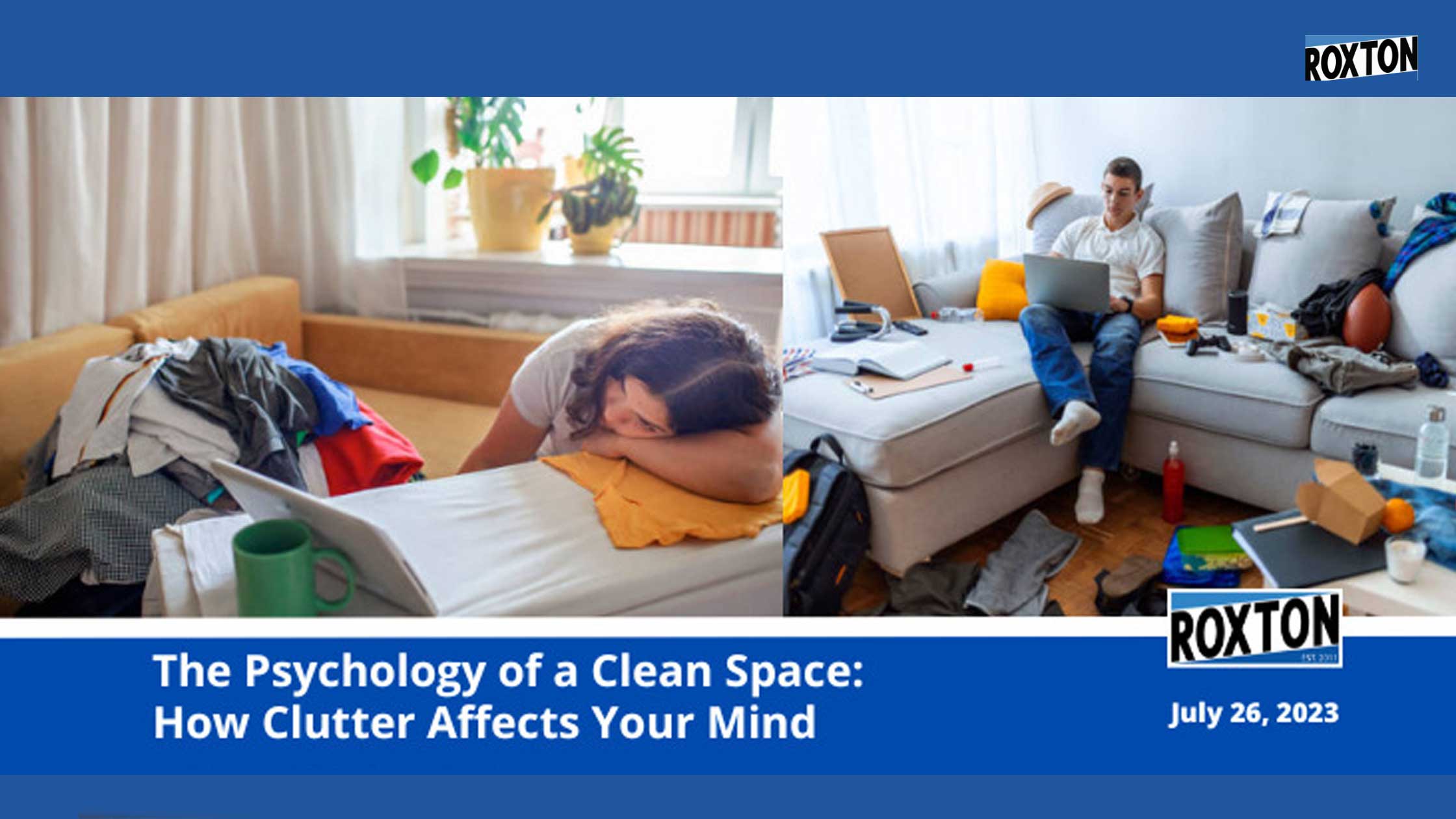The Psychology of a Clean Space: How Clutter Affects Your Mind

Have you ever walked into a cluttered room and immediately felt overwhelmed? Or maybe you’ve experienced the calming effect of being in a clean and organized environment. Our physical surroundings have a significant impact on our mental well-being. The psychology of a clean space is a fascinating topic that explores how clutter affects our minds and emotions. Let’s delve into the science behind it and discover the benefits of maintaining a tidy environment.
The Cost of Clutter
Cluttered spaces can overload our cognitive processes, making it difficult for us to focus and think clearly. Research has shown that visual stimuli, such as piles of papers or scattered objects, compete for our attention and drain our mental resources. When our brains are constantly processing these visual distractions, our ability to concentrate on tasks at hand diminishes. As a result, we become less productive and more prone to making mistakes.
Decision Fatigue
Cluttered environments bombard us with an excess of choices, which can lead to decision fatigue. When we’re surrounded by an abundance of objects, our brains have to constantly process and evaluate each item, making it harder to make decisions. This can be especially evident in spaces like our closets, where a multitude of clothing options can leave us feeling overwhelmed and dissatisfied with our choices. A clean and organized space, on the other hand, minimizes decision-making fatigue by reducing unnecessary options and streamlining our environment.
Productivity and Creativity
A clutter-free space can boost both productivity and creativity. Numerous studies have shown that an organized environment promotes clearer thinking, allowing us to work more efficiently. When our physical space is tidy, our minds feel less cluttered, enabling us to focus on the task at hand and generate new ideas. Furthermore, a clean space provides a blank canvas for our creativity to flourish, encouraging us to think outside the box and approach challenges from fresh perspectives.
Emotional Well-being
Our surroundings have a profound impact on our emotional well-being. A cluttered space can evoke feelings of guilt, shame, and frustration, as it reminds us of unfinished tasks or neglected responsibilities. In contrast, a clean and organized environment fosters a sense of serenity and contentment. When our physical space is in order, we experience a greater sense of control and accomplishment, which positively influences our mood and overall happiness.
Sleep Quality
The state of our bedroom directly affects the quality of our sleep. A cluttered sleep environment can interfere with relaxation and create a sense of unease. The National Sleep Foundation recommends keeping the bedroom clean and free of clutter to promote restful sleep. A tidy space provides a soothing atmosphere, allowing our minds to unwind and preparing our bodies for a rejuvenating slumber.
In conclusion, the psychology of a clean space reveals that clutter has a significant impact on our minds and emotions. From cognitive overload and increased stress levels to decision fatigue and decreased productivity, living in a cluttered environment can have detrimental effects on our overall well-being. On the other hand, maintaining a clean and organized space promotes mental clarity
About admin
Latest Posts

Reduce Sick Days and Protect Your Team
The average employee takes 7.4 sick days/year in Canada, which costs businesses and organizations like yours over $16B in lost productivity....
The Insider Guide to Successfully Survive that Car Cleanout
Are you in need of a car deep cleaning, but unsure where to start? Don’t worry we’ve got you! Have...
